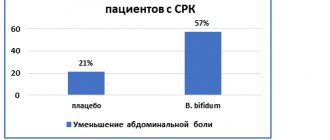L-Glutamine: Health Benefits, Dosages
Have you ever heard about the benefits of L-glutamine? First of all, this substance in powder form is actively taken by athletes and simply sports enthusiasts to protect muscle tissue. L-glutamine (or simply glutamine) is an amino acid that the body uses in large quantities as a building block.
Most often, glutamine is used to burn fat, lose weight and build muscle mass. But scientists say that the benefits of the substance do not end there. Glutamine can improve digestion, brain function, performance, and help treat digestive problems and leaky gut.
In fact, it is one of the most commonly recommended supplements for healing leaky gut and creating a lean body. Let's find out why.
What is glutamine?
The chemical formula for glutamine is C5H10N2O3 and is naturally found in protein foods. This amino acid is present in the bloodstream in fairly large quantities, making up about 30-35% of the total amino acid nitrogen in the body.
Glutamine is known as a conditionally essential amino acid. This means that the body can produce a substance, but the amount produced is not enough for it to work properly.
Its consumption also increases when the body experiences disease or muscle atrophy, which can also be caused by physical trauma.
In addition, a conditionally essential amino acid is necessary in some catabolic conditions, including after bone marrow transplantation.
Surprisingly, about 60% of our skeletal muscle is made up of glutamine, and supplementing with this amino acid can help promote protein synthesis and naturally normalize pH levels.
general characteristics
In the human body, glutamine is a fairly common amino acid - it makes up almost 20% of the total group of substances. More than 60% of our skeletal muscles are made up of this amino acid. And given that it contains 19% nitrogen, glutamine is the main supplier of nitrogen compounds.
Content:
- general characteristics
- Glutamine and glutamic acid: what is the difference
- Glutamine and...
- Daily norm
- The Dangers of Deficiency
- Side effects
- Food sources
Our bodies use glutamine as a building block for glycopeptides and glycoproteins, which in turn are needed to support bones and joints. It also plays a key role in regulating the synthesis of the antioxidant glutathione.
It has been proven that glutamine has a positive effect on the growth process and supports the immune system. And its ability to have a beneficial effect on muscle tissue makes it an extremely popular sports nutrition supplement among bodybuilders. Also, the property of this amino acid to retain moisture in tissues is used by bodybuilders to maintain muscle volume and relief. In addition, glutamine prevents muscle catabolism and helps the body recover faster during sleep. With its antioxidant properties, glutamine protects against free radicals and also prevents degenerative neurological diseases, particularly Alzheimer's and Parkinson's. Under conditions of increased catabolism during infectious diseases or recovery from injuries, the concentration of glutamine decreases by almost 2 times, causing severe weakness.
Sources
Glutamine is present in both animal and plant foods (including casein and whey protein). It is also available in dietary supplement form and is widely used in the fitness industry and beyond.
Glutamine is found in animal protein such as meat and dairy products, as well as plant foods such as beans, raw spinach, parsley and red cabbage. However, it is worth noting that amino acids from animal protein are absorbed better than from plant protein.
Research has concluded that the average person consumes approximately 3-6 grams of glutamine daily.
Foods with the highest concentrations of L-glutamine include:
- Eggs
- Tofu cheese
- Milk
- Bone broth
- Grass cow beef
- Spirulina
- Chinese cabbage
- Cottage cheese
- Asparagus
- Broccoli rabe
- Wild fish (cod and salmon)
- Venison
- Turkey
- Corn
- Rice
How a 10-minute bath will change the way you think
To get the required amount of glutamine, it is recommended to consume at least three servings of foods rich in this amino acid daily.
Benefit for health
New research suggests that L-glutamine is beneficial to our bodies for a number of reasons:
Improves the functioning of the gastrointestinal tract and strengthens the immune system
L-glutamine can improve the general condition of the body by normalizing intestinal function and digestion. It may be useful for diseases such as:
- irritable bowel syndrome (IBS)
- inflammatory bowel diseases, such as Crohn's disease
- ulcerative colitis
- diverticulosis
- diverticulitis
- leaky gut syndrome or related condition (eg, joint pain, rosacea, autoimmune responses)
It is worth noting that the man who discovered the Krebs cycle (tricarboxylic acid cycle) was the first to recommend taking L-glutamine for intestinal problems. Hans Adolf Krebs, a German-born English biochemist who shared the 1953 Nobel Prize in Physiology with Fritz Lipmann, discovered that this amino acid helps improve intestinal function and associated immune responses. Additional studies only confirmed his results.
Thus, a study published in the journal Clinical Immunology showed that L-glutamine normalizes the effect of the TH2 immune response, which stimulates inflammatory cytokines. Studies have shown that L-glutamine reduces inflammation in the intestines and helps manage food sensitivities.
It is also known to play an important role in normalizing the microbiota in the intestines and strengthening the immune system. This amino acid may be able to block the growth and spread of pathogenic bacteria, thereby reducing the risk of developing many diseases, from constipation to weight gain.
In 2022, the journal Nutrients published an article stating that “in vitro and in vivo studies have demonstrated that glutamine is essential for lymphocyte proliferation and cytokine production, phagocytic and secretory activity of macrophages, and bacterial killing by neutrophils.” In fact, glutamine is now part of a range of dietary supplements recommended to boost immunity.
Helps treat leaky gut and ulcers
Leaky gut syndrome is a very common condition, the main cause of which is an autoimmune disorder.
Leaky gut syndrome can lead to the development of thyroid problems, such as Hashimoto's disease, arthritis, psoriasis and other ailments.
Clinical studies have proven that since glutamine is the main fuel of small intestinal cells, it can support intestinal function and heal leaky gut.
The study above, published in the medical journal Lancet, involved 20 hospital patients. It has proven that supplemental L-glutamine reduces intestinal permeability.
An animal study published in the British Journal of Surgery found that L-glutamine has a beneficial effect on the development of ulcerative colitis and inflammatory bowel disease. It also shows promising results in treating ulcers and protecting against further damage. In addition, glutamine may become a safer natural alternative to antibiotics in the treatment of stomach ulcers.
Supports brain function
The precursor to the neurotransmitter glutamate in the human brain, glutamine is one of the most important components in promoting brain health. Why? Disruption of the glutamine-glutamate cycle can lead to brain problems, including:
- Reye's syndrome
- epilepsy
- bipolar disorder
- schizophrenia
- anxiety
- depression
- alcohol addiction
Glutamine also helps slow down brain aging. Mitochondrial dysfunction causes abnormal growth of the neurotransmitter glutamate, which increases the risk of developing brain problems.
A study conducted by New York University School of Medicine, USA, showed that even mild traumatic brain injury can cause brain atrophy, and much of this damage may be caused by disruption of the glutamine-glutamate cycle and abnormal increases in glutamate levels.
May help manage IBS symptoms and diarrhea
Glutamine helps relieve symptoms of IBS and fights diarrhea by normalizing mucus production.
If you have Hashimoto's disease and an underactive thyroid gland, taking L-glutamine may be mandatory. The same recommendations apply to patients suffering from IBS symptoms, such as persistent diarrhea or ulcers.
Promotes muscle growth
Research suggests that L-glutamine may be effective in boosting metabolism, increasing performance, improving athletic performance, speeding injury recovery, and building muscle mass. During intense training, your body is under stress, and your muscles and tendons need more glutamine.
After exercise, cellular glutamine levels can drop by up to 50% and plasma levels by up to 30%. During this period, the body can begin to use muscles instead of carbohydrates as a source of energy, in which case glutamine can protect them from exhaustion.
Supplemental intake of this amino acid allows muscles to grow, strengthening skeletal muscles and making them stronger.
Research has shown that glutamine supplements promote faster recovery after intense training with additional weights by helping to keep muscles hydrated. This accelerates the process of muscle recovery, as well as recovery from injuries and burns.
For this reason, glutamine supplements are popular not only among professional athletes, but also among anyone who wants to have a beautiful, athletic body.
May increase stamina
One of the main functions of L-glutamine is to help eliminate toxins and reduce ammonia levels in the body. Acting as a buffer, it converts excess ammonia into other amino acids, amino sugars and urea.
An hour-long workout can reduce glutamine levels in the body by 40%, which leads to weakened immunity. This can negatively impact long-term training results and cause overtraining syndrome.
L-glutamine is very beneficial for long-distance runners as it helps support the functioning of the immune system (T helper cells). Animal studies have shown that increasing T helper cells can reduce the stress associated with overtraining syndrome.
However, not every study proves that the amino acid can increase endurance. One 2022 review that included data from 55 studies concluded that glutamine improves markers of fatigue, including increased glycogen synthesis and decreased ammonia accumulation, but these changes do not always translate into increased physical performance.
Supports Metabolism and Heart Health
One study found that human growth hormone levels increased by almost 400% after a course of glutamine supplements. This hormonal response leads to an increase in resting metabolic rate and improves the afterburn effect or EPOC after exercise.
This afterburn effect is especially important for burning fat, losing weight, and increasing muscle mass.
Is glutamine effective for weight loss? There is evidence that this amino acid helps burn fat and gain muscle by reducing insulin levels and stabilizing blood glucose levels. Thus, the body uses less muscle mass to maintain sugar levels and insulin sensitivity in cells.
For example, 6 weeks of taking 30 grams of glutamine supplements per day “will significantly reduce the risk of cardiovascular disease and also improve body condition in patients with type 2 diabetes,” one study claims. For this reason, taking L-glutamine is recommended for diabetics and people with cravings for sugar and carbohydrates.
Recently, new data has begun to emerge that also prove that L-glutamine plays a key role in maintaining cardiovascular health, acting as a substrate for the synthesis of DNA, ATP, proteins and lipids. In addition, the amino acid appears to have antioxidant and anti-inflammatory effects, helping to reduce the risk of developing cardiovascular diseases, including:
- hypertension
- hyperlipidemia
- glucose intolerance
- obesity
- diabetes
The Dangers of Deficiency
The concentration of glutamine in the blood exceeds that of any other amino acid (approximately 500-900 micromoles per liter of blood), and its deficiency can cause serious health consequences.
Amino acid deficiency is usually diagnosed in people with impaired metabolism. Severe injuries, burns, and surgical operations also contribute to a sharp decrease in the level of the substance. Even minor infections in the body can quickly deplete glutamine stores.
Regular deficiency of the substance can lead to disruption of the immune system. In addition, the body's ability to absorb vitamins and other nutrients will be dramatically reduced. Thus, a lack of glutamine is a total amino acid imbalance, a tendency to disease and a deficiency of many useful elements. Under such circumstances, it is worth considering taking the substance in the form of dietary supplements.
Shortage
L-glutamine is synthesized by the body from glutamic acid or glutamate. If the body is unable to produce enough of this substance, it needs an additional source in the form of food.
Scientists estimate that about 70 million Americans suffer from digestive diseases. It is obvious that there is a lack of substances in the diet that support the functioning of the gastrointestinal tract. There may be several reasons for this:
- insufficient amount of protein in the diet
- a lot of stress
- too intense training
- presence of infections and diseases
- undergoing treatment, including radiation or chemotherapy
- disruption of the immune system
- presence of chronic gastrointestinal disorder
Additional intake of glutamine will help not only strengthen the immune system, but also increase the body's resistance to fight infections and diseases.
Glutamine is also recommended for seriously ill patients. According to a study published in the medical journal Critical Care, parenteral nutrition supplemented with glutamine dipeptides "is associated with significant reductions in length of stay and in-hospital mortality."
Glutamine and glutamic acid: what is the difference
By acting on the nervous system, glutamine is able to be converted into the neurotransmitter glutamic acid, and then, if necessary, back into glutamine. But despite the similarity of names, it is important to understand the difference between these two amino acids.
Glutamine is an amino acid, the maximum concentration of which is found in the brain and spinal cord, plasma, as well as in the intercellular fluid of parts of the muscles.
This substance regulates the balance of alkali and acids, promotes the production of new cells, thereby preventing early aging. With a lack of glutamine, tissues are destroyed, and the body begins to use muscle tissue as a source of proteins.
Glutamic acid is a neurotransmitter and belongs to the non-essential class. It is responsible for the transmission of nerve impulses, affects the functioning of the central nervous system, and has psychostimulating and stimulating properties. If there is a need to support, restore physical strength, or build muscle, then glutamine should be introduced into the diet, and glutamic acid is important for mental health.
Dosage
Types of L-Glutamine
L-glutamine exists in two forms. The so-called “free” form of L-glutamine can be obtained from foods. Its other form, trans-alanyl-glutamine or alanyl-L-glutamine, is an amino acid attached to another amino acid. This form is absorbed much better, and unlike the free form, it can be consumed on an empty stomach.
Both types of substance are best taken immediately before or immediately after exercise along with a small amount of food to support metabolism and endurance, build muscle mass, and burn fat.
Recommended dosage
Typically, 2-5 grams of L-glutamine is taken twice daily, but not more than 10 grams per day (for professional weightlifters).
What is the best time of day to take L-glutamine? Replenishing glutamine deficiency after intense training can take up to five days, for this reason the substance should be taken regularly.
Some athletes believe that glutamine is more effective when combined with certain branched chain amino acids (BCAAs), especially leucine.
Others take the amino acid post-workout along with creatine for muscle recovery and energy maintenance.
Method of administration
You need to take “L-Glutamine” one tablet 1 to 2 times a day. Do not exceed dosage unless you have consulted your doctor first.
Our website presents original drugs from the best manufacturers of vitamin complexes and dietary supplements. We guarantee the high quality of the products presented and their compliance with the necessary certificates and standards. All items presented on the website are in stock. We deliver within Moscow by courier, and to other regions we send by mail or through transport companies. Having difficulty choosing a drug? Call us! Our managers will provide full consultation and help you make the right choice.
Risks and side effects
In moderation, glutamine is quite safe, especially when taken for a short period of time. Even when consuming 20-30 grams of glutamine per day (this dosage is considered quite high and was generally used in studies), the likelihood of side effects remains relatively low.
However, excess glutamine taken orally over time can cause undesirable effects. For this reason, it is recommended to combine amino acid intake with B vitamins. Thus, vitamin B12 helps control the amount of glutamine in the body.
Contraindications
The dietary supplement “L-Glutamine” is strongly not recommended for people with individual intolerance to the components that make up the drug. Pregnant and breastfeeding women should not take it. When taking sports nutrition, you must consult with a specialist and determine the compatibility of the dietary supplement with other products. The dietary supplement “L-Glutamine” is not a drug and can only be used for preventive purposes, as well as for general strengthening of the body. Store the bottle of tablets out of the reach of children at a temperature not exceeding +25 degrees Celsius.






